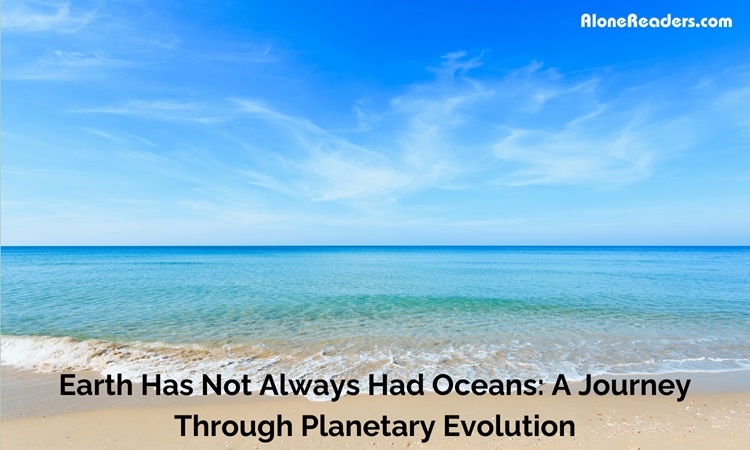
In the annals of Earth's history, the presence of vast oceans covering more than 70% of the planet's surface stands as a testament to the remarkable evolutionary journey our world has undergone. Contrary to popular belief, scientists have revealed that Earth, in its nascent stages, was devoid of oceans. This article delves into the intriguing history of how our planet's oceans came into existence.
During the initial billion years of Earth's existence, the concept of oceans was non-existent. The planet, in its early form, was engulfed in extremely high temperatures, rendering the condensation of water molecules into liquid form impossible. This period, often referred to as Earth's formative era, was marked by a landscape vastly different from the one we are familiar with today.
As Earth gradually began to cool down, a significant transformation unfolded approximately 3.8 billion years ago. The cooling process allowed water molecules, which were initially present in gaseous form, to condense and stop evaporating rapidly. This marked the beginning of the formation of significant bodies of water, leading to the genesis of what we now know as oceans.
A widely accepted theory among scientists is that the gradual accumulation of the ocean and atmosphere was a result of continuous "degassing" from Earth's core. This process involved the escape of water vapor and other gases from the Earth's molten rocks. As these gases entered the cooling atmosphere, they contributed significantly to the creation of the ocean.
The cooling of Earth's surface to temperatures below the boiling point of water instigated a period of prolonged rainfall, lasting for centuries. This relentless downpour was crucial in filling the large depressions on Earth's surface, leading to the formation of the original ocean. The gravitational forces of the planet played a pivotal role in retaining this water, preventing it from leaving Earth's gravitational pull.
Over millions of years, these bodies of water gradually expanded, filling the planet's hollows and basins. This process was instrumental in shaping the Earth's topography and climate, setting the stage for the development of life.
The history of Earth's oceans is a remarkable story of transformation, from a hot, barren landscape to a blue, life-sustaining world. This evolution not only reflects the dynamic nature of our planet but also underscores the intricate interplay between geological processes and the emergence of life.